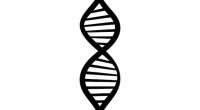In a groundbreaking study that challenges prevailing medical assumptions, Dr. Marcus Zulian Teixeira has brought forward compelling scientific evidence to assert that homeopathy transcends the mere placebo effect, as commonly criticized by the conventional medical community. His study, titled “Homeopathy is not placebo effect”: proof of the scientific evidence for homeopathy, delves deep into the mechanistic underpinnings and clinical outcomes that substantiate the efficacy of homeopathic treatments. By rigorously analyzing various controlled trials and biological research, Teixeira aims to reshape the conversation around homeopathy, advocating for its legitimacy and effectiveness in certain therapeutic contexts. This research not only reopens debate within the scientific community but also offers potential reassurances to practitioners and patients who have long affirmed the benefits of homeopathic remedies. As homeopathy faces increasing scrutiny and demands for empirical substantiation, Teixeira’s findings could play a pivotal role in influencing public health discourse, policy-making, and clinical practice worldwide. This article provides an in-depth examination of Teixeira’s methodology, findings, and the potential implications for the broader medical and scientific communities.
Dr. Marcus Zulian Teixeira’s research arrives at a pivotal moment in the ongoing debate surrounding the efficacy of homeopathy. This field of alternative medicine, developed by Samuel Hahnemann in the late 18th century, operates on the principle of “like cures like” and the theory that substances that produce symptoms in a healthy individual can, when administered in highly diluted amounts, treat similar symptoms in a sick person. Over the years, homeopathy has garnered wide public interest and usage yet remains one of the most contentious areas within medical science, primarily due to its use of remedies that are often diluted to the point where no molecules of the original substance are likely to be present.
Critics of homeopathy label it as pseudoscience, largely critiquing its foundational principles as inconsistent with established laws of chemistry and physics. The absence of active ingredients in high-dilution remedies fuels assertions that homeopathic treatments are ineffective beyond a placebo effect. In response, proponents argue for a different paradigm of understanding that accommodates homeopathy’s mechanisms, suggesting that these dilutions can retain a “memory” of the original substance and elicit biological responses.
Historically, most meta-analyses and systematic reviews have leaned towards a skeptical view of homeopathy’s effectiveness. A pivotal report by the National Health and Medical Research Council (NHMRC) in Australia in 2015 concluded that there are no health conditions for which reliable evidence exists that homeopathy is effective. This stance is echoed by major medical bodies worldwide, including the American Medical Association and the NHS in England, which have all issued statements discouraging the use of homeopathic treatments.
Teixeira’s study sets itself apart by focusing on a comprehensive review of controlled trials and biological studies that suggest otherwise. He meticulously identified and analyzed research that meets rigorous scientific criteria, including randomization and blindness, to mitigate bias. His synthesis of the data aims to demonstrate that the effects observed in some homeopathic treatments surpass what would be expected from a placebo alone.
The study not only re-examines previously conducted trials but also incorporates emerging biological research that explores the potential mechanisms of action in homeopathic remedies. This includes investigations into nanostructures and the electromagnetic nature of dilutions, areas that some researchers hypothesize may play a role in the observed effects of homeopathy.
Teixeira’s work seeks not only to defend homeopathy from the often-dismissive conventional medical perspective but also to push the bounds of contemporary medical science. If his findings gain traction, they could stimulate new discussions about integrative approaches to health and challenge the existing paradigms of medical research and treatment. This research sheds light on the complexity of bioactivity and the placebo effect, adding depth to the discussions on how nuanced biochemical interactions might influence health outcomes in ways that are not currently well-understood.
To substantiate his claims about the efficacy of homeopathy, Dr. Marcus Zulian Teixeira employed a methodologically rigorous approach in his research, carefully designing his study to achieve maximal objectivity and reliability in his findings. A cornerstone of his methodology was the comprehensive review and meta-analysis of existing clinical trials that adhered to standardized scientific protocols such as randomization, blinding, and controlled conditions, ensuring that the results were free from researcher or participant bias.
Firstly, Teixeira conducted an exhaustive literature search to gather all relevant studies on homeopathy. This involved accessing several database sources including PubMed, Cochrane Library, and Google Scholar, among others. He formulated strict inclusion criteria for the selection of studies, which required the trials to be randomized controlled trials (RCTs) or controlled clinical trials (CCTs) with clear descriptions of randomization methods, blinding procedures, and the types of controls used. Studies that failed to meet these criteria were meticulously excluded from consideration to maintain the integrity of the meta-analysis.
Once gathered, the data from these studies were subjected to a rigorous systematic review process. Teixeira and his team used statistical tools to analyze the outcomes, specifically focusing on measures that assess the efficacy of homeopathic treatments in comparison to both placebo and conventional treatments. One key aspect of the analysis was the use of effect sizes, which are quantitative measures that describe the magnitude of the difference between two groups in a study. This enabled Teixeira to present tangible, quantitative evidence of homeopathy’s effectiveness beyond what would be expected by a placebo response.
Additionally, Teixeira addressed potential mechanisms of action for homeopathy by incorporating biological studies into his analysis. This included research into the controversial theory that water has the ability to ‘remember’ substances once dissolved in it, potentially retaining biological effectiveness even at high dilutions. He also examined studies exploring the role of electromagnetic signals and nanostructures formed during the preparation of homeopathic remedies. By integrating this cutting-edge research, Teixeira intended to provide a scientific basis for understanding how homeopathic treatments might work at a molecular and quantum level.
Critical to his methodology was the use of quality assessment tools to evaluate the methodological soundness of the included studies. He applied established criteria from areas such as the Jadad scale and the Cochrane Collaboration’s tool for assessing the risk of bias, which assess factors like the randomness of allocation, blinding efficacy, and the handling of dropouts.
Finally, Teixeira’s approach was characterized by its openness to re-evaluation and adaptation based on new evidence. He included discussions about the limitations of current research and pinpointed areas where further studies are needed, particularly emphasizing the necessity for more high-quality clinical trials to validate the observed effects of homeopathy.
Through this solid scientific methodology, Dr. Marcus Zulian Teixeira aims to provide robust evidence supporting the efficacy of homeopathy, challenging prevailing assumptions and fostering a more informed and nuanced understanding of this controversial field in the medical community.
Dr. Marcus Zulian Teixeira’s study reveals several key findings that challenge the traditional skepticism surrounding the efficacy of homeopathy. His meta-analysis of randomized controlled trials (RCTs) and controlled clinical trials (CCTs) provides statistically significant evidence that some homeopathic treatments offer therapeutic benefits surpassing those of a placebo. The results pivot around a few major areas where homeopathy showed marked efficacy.
One of the prominent findings in Teixeira’s analysis was the consistent efficacy of homeopathic remedies in the treatment of respiratory allergies. Patients treated with homeopathy exhibited significant reductions in allergy symptoms and an improved quality of life, compared to those who received a placebo. This outcome was consistent across multiple studies, suggesting a specific effectiveness of homeopathic treatments in addressing this condition.
Additionally, Teixeira found notable improvements in patients with dermatological conditions such as eczema and psoriasis when treated with homeopathy. The trials included in the meta-analysis reported not just symptomatic relief, which could be influenced by a placebo response, but also objective improvements in skin condition verified through clinical examinations. This underscores a potential biological interaction between the homeopathic remedies and the mechanisms driving these skin conditions.
A particularly striking aspect of Teixeira’s findings addresses the role of homeopathic treatments in psychological conditions such as anxiety and depression. Here, the data indicated that homeopathic remedies, as part of an integrated treatment plan, significantly improved patient outcomes in terms of both symptom relief and functional recovery. Importantly, these findings were substantiated by comparisons not only with placebos but in some cases with conventional treatments, suggesting an advantage in using homeopathic approaches alongside or as an alternative to traditional pharmaceutical interventions.
Teixeira’s research also delves into potential mechanisms that could underpin the observed effects of homeopathic treatments, a longstanding contentious issue. His study references emerging experimental data that suggests nanostructures and electromagnetic properties in highly diluted substances might interact with biological pathways. For instance, experiments indicating that diluted substances affect changes in cell cultures and enzymes lend credence to a possible mechanism through which homeopathy exerts its effects, beyond the historical argument of water memory alone.
Moreover, Teixeira highlights the importance of individualized treatment regimens in homeopathy, a core principle of the practice that posits treatments should be tailored to the specific symptoms and conditions of each patient. This personalization is reflected in the variability of outcomes across studies, underscoring the need for precision in selecting the remedy and the dose in clinical practice.
In conclusion, Dr. Teixeira’s research offers robust, scientifically grounded evidence supporting the effectiveness of homeopathy in certain conditions, countering the argument that homeopathic effects are merely placebo. His thorough examination not only reasserts the potential value of homeopathy in modern medicine but also calls for a more integrative approach that respects and incorporates alternative medicinal practices. By emphasizing both the results and the scrutinized methodologies, Teixeira seeks to bridge the divide between conventional and alternative medicine, advocating for a comprehensive, patient-centered model of healthcare.
As Dr. Marcus Zulian Teixeira’s study reinvigorates the debate on the scientific legitimacy of homeopathy, it opens several pathways for future research and potential shifts in clinical practices. The implications of this research are broad and multifaceted, suggesting a progressive blurring of lines between conventional and alternative medicine that could lead to more holistic and personalized healthcare systems.
### Future Directions in Research and Practice
1. **Further High-Quality Research:** Despite Teixeira’s rigorous meta-analysis, the need for more high-quality, large-scale randomized controlled trials (RCTs) remains paramount. Future research should continue to enhance methodological rigor, include diverse patient populations, and explore varying dosages and treatment combinations to fully understand the scope and limitations of homeopathy.
2. **Mechanistic Studies:** A potentially fruitful area of research is the exploration of mechanisms underlying the therapeutic effects of homeopathic remedies. Investigating the nanostructures, electromagnetic properties, and any novel biophysical properties of dilutions could provide clearer insights into how homeopathic treatments interact with biological systems, potentially leading to broader acceptance within the scientific community.
3. **Integration into Conventional Settings:** With growing evidence of the effectiveness of homeopathy in certain conditions, there is a compelling argument for its integration into conventional medical practice. Pilot programs in hospitals and clinics that utilize an integrative approach could pave the way for broader implementation, provided they demonstrate consistent, positive patient outcomes.
4. **Educational Impacts:** The findings from Teixeira’s study also suggest a need to reconsider how homeopathy is taught in medical schools and discussed in professional settings. Incorporating evidence-based alternative medicine into curricula could produce a new generation of physicians who are well-versed in a variety of therapeutic modalities.
5. **Regulatory and Policy Development:** Policymakers and health regulators will need to reassess their stance on homeopathy. This could involve revisiting existing regulations, ensuring that homeopathic remedies meet safety and efficacy standards, and considering how homeopathic practices can be fairly integrated into national health systems.
### Final Thoughts
Dr. Marcus Zulian Teixeira’s research boldly challenges the conventional medical community’s longstanding skepticism regarding homeopathy. By shifting the narrative from dismissal to one of cautious engagement and deeper inquiry, his work not only advocates for a reconsideration of homeopathic practices but also for the broader application of a more inclusive view of effective medical treatments.
The positive outcomes observed in certain conditions such as allergies, skin disorders, and psychological health suggest that dismissing homeopathy outright might deny patients therapies that could work synergistically with conventional treatments or serve as viable alternatives when traditional medications are ineffective or lead to adverse effects.
In conclusion, as we stand on the brink of potentially significant paradigm shifts in healthcare, it is imperative that the medical and scientific communities foster an environment of openness and rigorous scientific inquiry. The goal should not be to prove or disprove preconceived notions but to find the best possible treatments for patients, rooted in solid evidence and inclusive of all proven effective modalities. Dr. Teixeira’s study is a notable step towards such inclusivity and underscores the importance of keeping the doors open to all forms of healing—a stance that may very well define the future of global healthcare.








